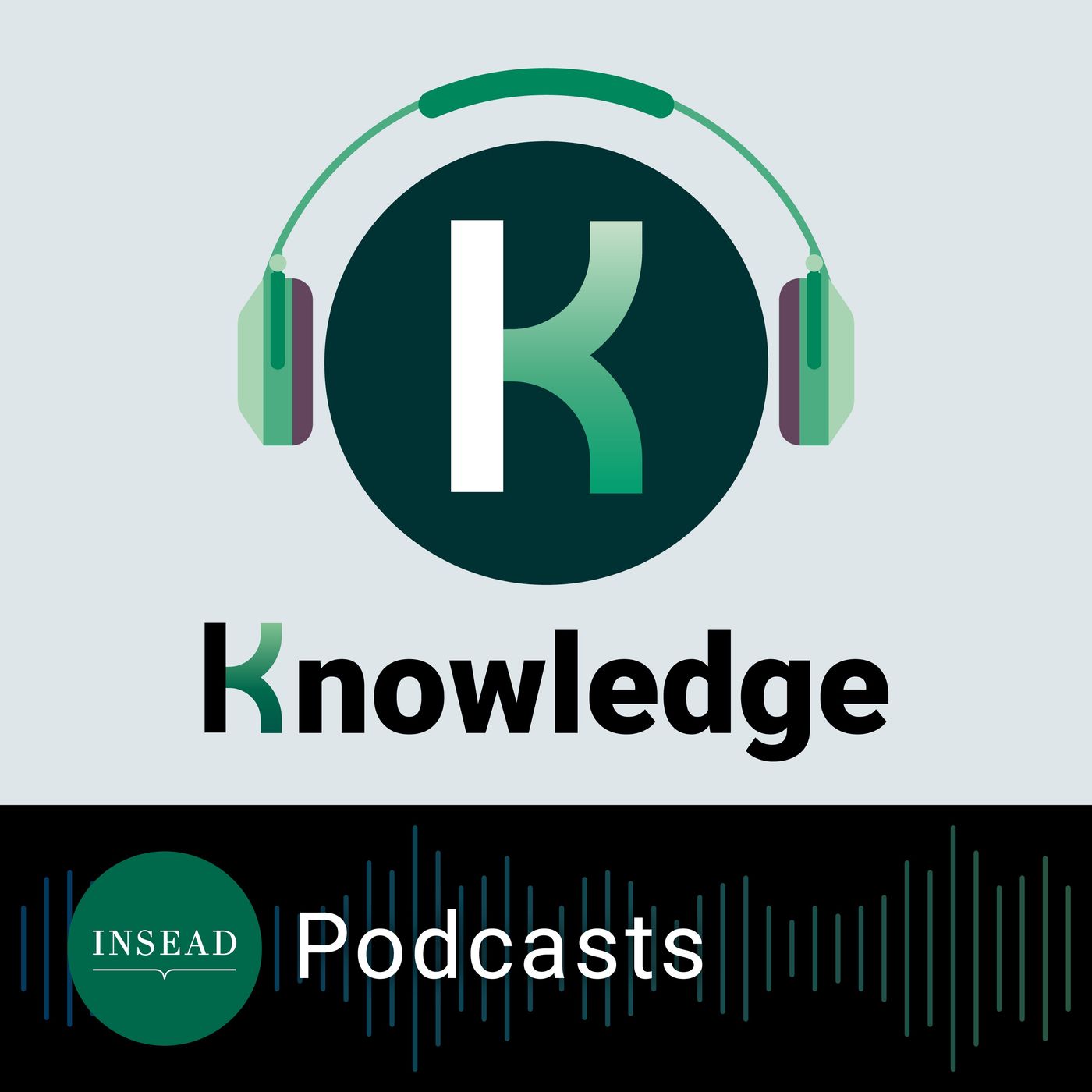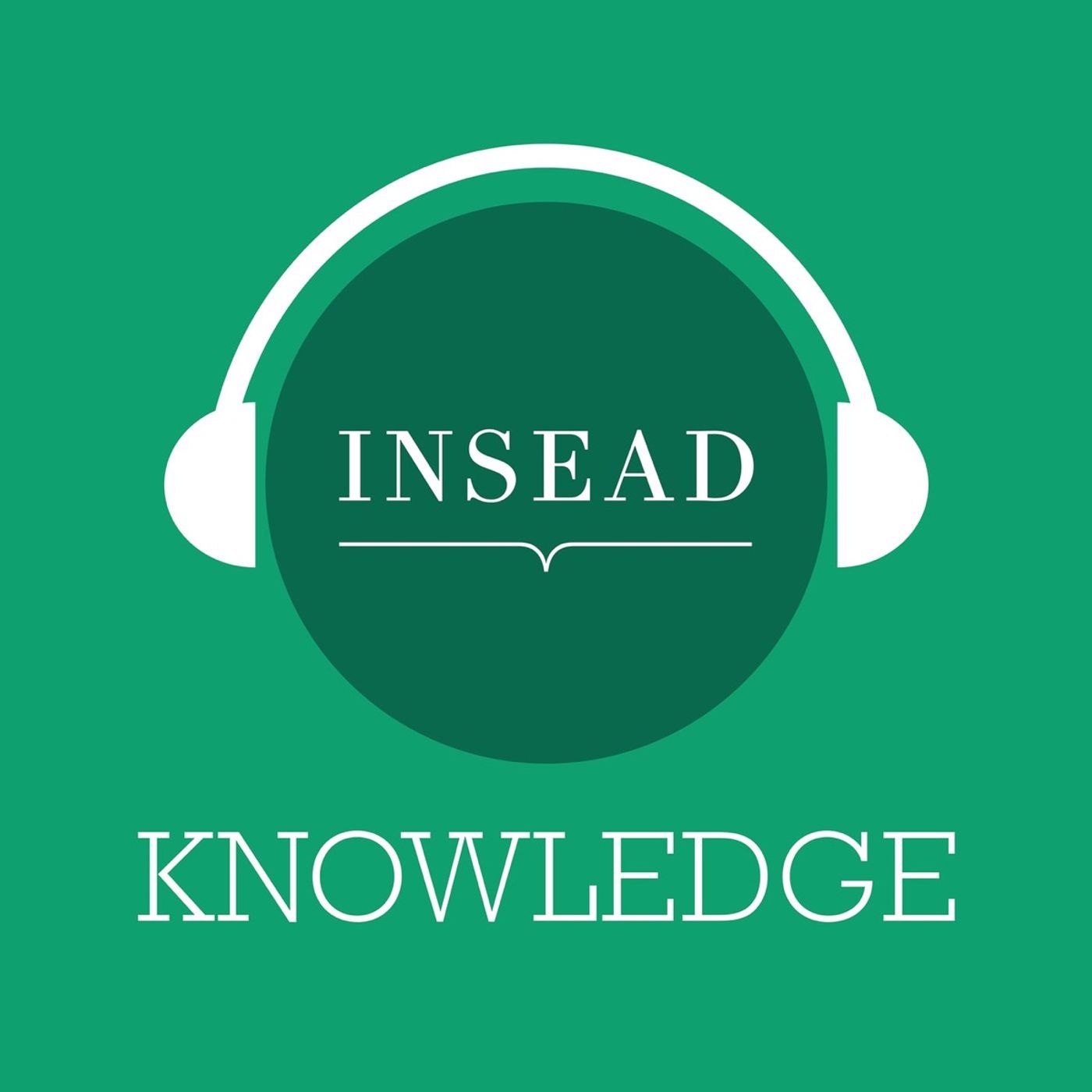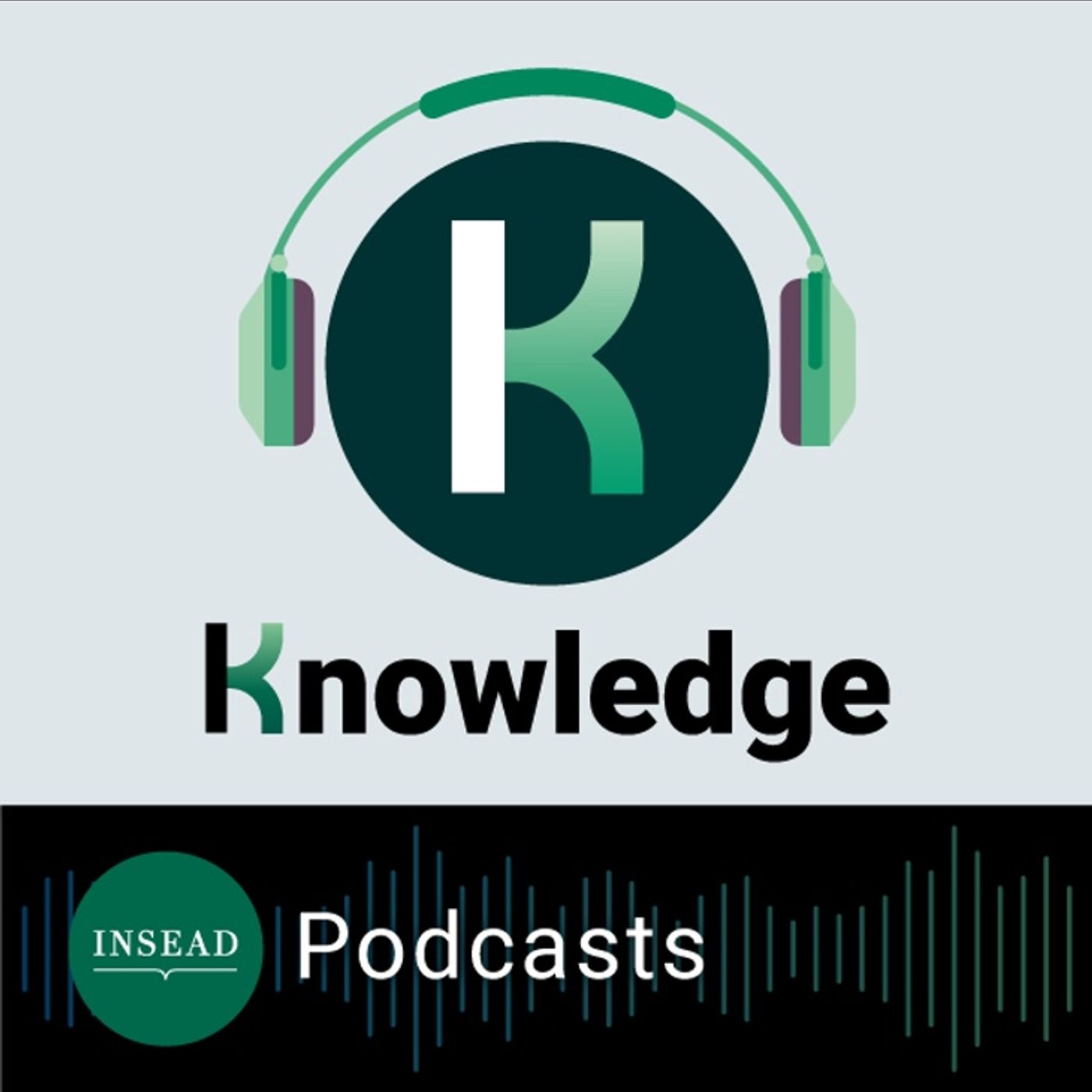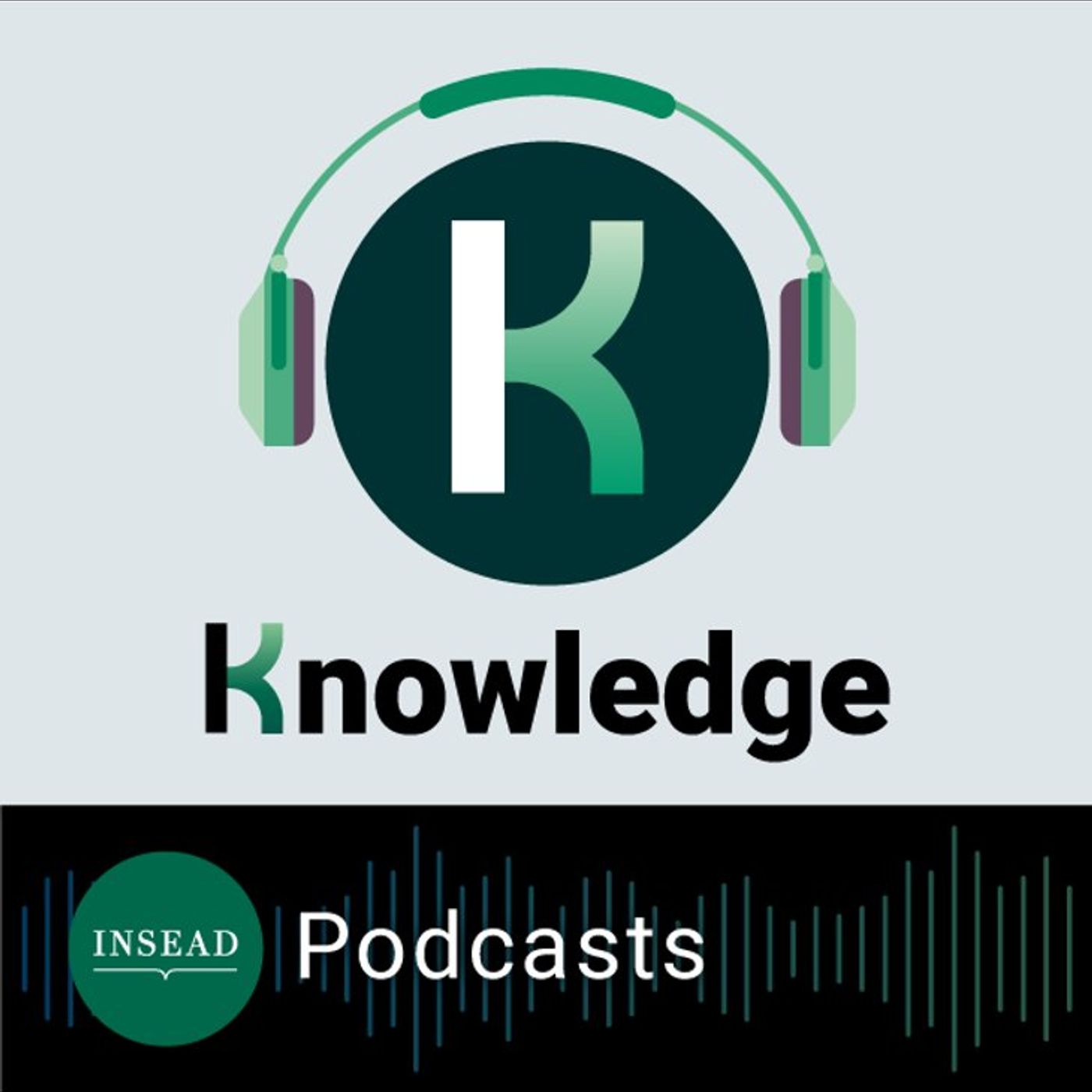Discover INSEAD Knowledge Podcast
INSEAD Knowledge Podcast

33 Episodes
Reverse
The emergence of large language models (LLMs) is poised to transform many industries, from entertainment and health care to market analysis. Businesses that fail to explore the rich opportunities presented by language technologies may soon find themselves at a significant competitive disadvantage.We speak to Abhishek Borah, Associate Professor of Marketing at INSEAD, about his new book, Mine Your Language: Influence, Engage, Predict, which offers vital insights on how language can be monetised.With an engaging mix of anecdotes and research, Abhishek explains how the art of text mining can unlock critical insights from data, a far cry from the expensive and often biased consumer marketing surveys.
Professionals are often told – and mostly convinced – that networking is good for their careers. However, the challenge is plugging the knowing-doing gap. How can people build and manage their networks more effectively? What makes individuals more or less motivated to network? In this podcast, Ko Kuwabara, Associate Professor of Organisational Behaviour at INSEAD, explains how mindsets can affect peoples' motivation to network. He discusses networking through the lens of a growth vs. fixed mindset – a concept popularised by psychologist Carol S. Dweck.He also discusses how as the modern workplace becomes increasingly diverse, a growth mindset can help members of an organisation better embrace diversity.
Leaders play an important role in spearheading organisational change. However, INSEAD professor Narayan Pant notes that many leaders tend to rely on the same ways of doing things that have worked for them in the past, even though it may be the wrong approach for a particular situation.In this podcast, Pant delves into why it can be difficult for leaders to identify and change their behaviours. He explains the four-step process to help leaders overcome this, which includes cultivating awareness, making a commitment to change, overcoming interferences and putting new behaviours into practice.
The increasing volatility and asynchrony in today's business environment is urging leaders to move beyond traditional, internally focused team models.In this podcast, INSEAD professor Henrik Bresman discusses the second edition of his book, X-Teams: How to Build Teams That Lead, Innovate, and Succeed, co-authored with Deborah Ancona from MIT Sloan. The book emphasises the need for teams to engage externally to gain diverse perspectives, while maintaining internal cohesion. The second edition aims to reignite excitement for running better teams by celebrating successful implementations of X-Team principles.
Digital technologies create digital relationships that limit comapnies ability to innovate and change.It’s long been understood that social networks, the likes of LinkedIn and Facebook, but also tools such as Whatsapp and Slack, enable individuals to collaborate and accomplish important tasks. As a result, firms typically rely on collaboration through networks to help them innovate and change.Yet, in this podcast, INSEAD professor Jason Davis argues that networking to boost one’s social capital can actually hurt firms if the resulting “digital relationships” only help individuals pursue private objectives. The conversation expands on the themes covered in his recent book Digital Relationships: Network Agency Theory and Big Tech, itself based on over a decade of research in big tech companies such as Google, Amazon and Tesla, in America, Asia and Europe.
Why and how to reinvent multinational management skills. In this podcast conversation, Yves Doz, Emeritus Professor of Strategic Management at INSEAD, draws on over 30 years of research to argue that global companies now have two choices: They can simply retreat from operating globally, or they can try and rebuild their multinational management capabilities.
Are start-up ecosystems born or can they be made? Both, says Chiara Spina, INSEAD Assistant Professor of Entrepreneurship, who has extensive experience working with and studying start-ups in Italy, the United Kingdom, India and Pakistan. In the latest INSEAD Knowledge podcast, Spina explains that flourishing ecosystems such as Silicon Valley and Israel are often nurtured by unique local conditions and historical backgrounds. Future start-up hubs could well spring up in emerging economies such as the Czech Republic, Jordan and Pakistan. Spina evaluates their relative advantages and weaknesses, drawing from her experiences working on the ground with entrepreneurs and policymakers in these countries.She also recommends specific strategies for governments to find innovative ways to succeed in the start-up race, playing to the unique strengths and challenges of their region rather than replicating models from elsewhere.
Artificial intelligence has already demonstrated its ability to amplify performance and reshape competitive dynamics. A prime example lies in the pivotal role played by chess computers as artificial training partners, boosting players' capabilities.Introduced in the late 1970s, chess computers gained popularity in Western countries but were not available in the former Soviet Union due to microchip shortages. Building on this staggered diffusion, INSEAD’s Henning Piezunka and Fabian Gaessler from Pompeu Fabra University examined how AI influenced chess player performance under conditions where computers were exclusively accessible in the West vs. being available in both regions.Their research findings are compelling. Access to chess computers significantly boosted human performance, with players becoming substantially better. Furthermore, AI training helped level the playing field, especially benefitting disadvantaged players and those without access to human training partners. In this podcast, Piezunka emphasises the critical factors that determine the effectiveness of AI training.
Supply chain disruptions have become commonplace in recent years due to the increasing occurrence of natural disasters, the Covid-19 pandemic, the Ukraine war and various forms of geopolitical tension. In an increasingly volatile business environment, organisations that are used to operating in structured environments can look to the humanitarian sector for insights on navigating this new reality.In this podcast, INSEAD Knowledge speaks to Luk Van Wassenhove, Emeritus Professor of Technology and Operations Management and academic director of the INSEAD Humanitarian Research Group (HRG). He is not only well-known in the field of operations management, but also recognised as one of the pioneers in humanitarian operations.In the past, humanitarian organisations have benefited from adapting best practices from the commercial sector, but businesses can also gain insights from how humanitarian organisations operate in extreme conditions. How do they overcome uncertainty, time pressure, challenging physical conditions and the lack of resources and information?Van Wassenhove’s serendipitous engagement with the humanitarian world – including the Red Cross in Geneva and the UN World Food Programme for the UN Joint Logistics Centre – 25 years ago made him realise that operations management professionals have much to learn from humanitarian organisations. In fact, learning can be a two-way process. This is where the INSEAD HRG has a role in bridging knowledge between the two seemingly unrelated sectors. Companies need to look beyond their current and immediate boundaries and be open to learning from others. They should also learn to work with diverse stakeholders, be agile in dealing with unexpected situations, decentralise and localise where possible and empower employees to increase responsiveness. Moreover, principles of humanitarian work are increasingly relevant in a world with a growing divide. If companies follow the example of humanitarian organisations by embracing the principle to “do no harm” and take responsibility for the impact of their business, society and the environment will benefit greatly from this change.
Since the launch of ChatGPT in November 2022, many companies have harnessed the language model and similar generative AI tools for a variety of business functions, including writing marketing copy, coding and plugging gaps in medical imaging data. But before leaders jump on the generative AI bandwagon, they should consider how it fits into their existing technological infrastructure and wider digital transformation strategy. The technology also poses a myriad of risks, both internally and externally, that companies must mitigate.In this podcast, INSEAD Affiliate Professor of Strategy Chengyi Lin explains all the buzz around generative AI, outlines the implications of the technology across various sectors and offers key strategies to help CEOs, managers and entrepreneurs implement it more successfully across their organisations.
How do world-renowned leaders, innovators, entrepreneurs, artists and creatives achieve success? For some 20 years, Nathan Furr, an Associate Professor of Strategy at INSEAD, has been interviewing such individuals, culminating in a book with 42 practical tools to overcome uncertainty. In this INSEAD Knowledge podcast, we speak to Nathan Furr and Susannah Furr, his co-author of the book The Upside of Uncertainty: A Guide to Finding Possibility in the Unknown. In this conversation, they share how they developed this framework and how they consistently use the tools to navigate uncertainty in their lives. Amid the current socio-political and economic uncertainty, their tool kit demonstrates how to practice robust emotional hygiene to preserve mental well-being in difficult times.If we frame uncertainty in a different way, we might embrace the possibility it brings instead of fearing it.
Despite their best efforts and desire to “do good”, firms are often primarily focused on financial returns and rarely give stakeholders a seat at the table. This is because firms often lack a genuine understanding of the values that diverse stakeholders can bring and the unique needs and interests they seek.In this INSEAD Knowledge podcast, Lite Nartey, a Visiting Professor of Strategy at INSEAD, discusses how firms can identify key stakeholders based on their power and the legitimacy and urgency of their claims. She reveals the most effective ways to manage vast stakeholder networks and how to effectively engage with important players to create joint value.
What does it take to transform the idyllic Greek island of Tilos into the first zero-waste island? Can this circular model be extended to other islands and even other parts of the world? These are questions the INSEAD Sustainable Business Initiative seeks to answer in its first research collaboration with Polygreen – a network of companies that offers integrated and innovative circular economy solutions worldwide.INSEAD Knowledge speaks to Atalay Atasu, Professor of Technology and Management and academic director of the Sustainable Business Initiative at INSEAD and Imran Gill, CEO for the Middle East at Polygreen. Our guests speak about the Just Go Zero Tilos initiative and how Tilos could well be the role model to help organisations take sustainable and circular systems from inspiration to execution.
Love them or loathe them, Chinese tech giants such as ByteDance, Alibaba and Tencent have become global household names in e-commerce, digital payments, social media and gaming in a few short years. Relatively little is known about these firms, but a new book may just change that.Written by INSEAD Professor of Strategy Guoli Chen and Jianggan Li, founder and chief executive of venture capital firm Momentum Works, Seeing the Unseen: Behind Chinese Tech Giants' Global Venturing shines a light on the success – and failure – of the likes of TikTok, Shein and WeChat beyond their home market of China.Make sure to visit INSEAD Knowledge for the latest in impactful research and cutting edge thought leadership from INSEAD, the Business School for the World.
From the challenges of hybrid working to the quiet quitting trend, the Covid-19 pandemic has had a seismic impact on the workplace, leaving many companies struggling to understand how best to understand and meet employees' needs and motivations. In this INSEAD Knowledge podcast, Associate Professor of Organisational Behaviour Mark Mortensen proposes a more holistic approach to understanding employees’ needs, while offering practical solutions to ensure that they remain fully invested in their organisation and its goals.This conversation is based on research Mark co-authored with Amy C Edmondson and first published in the January 2023 HBR Magazine article Rethink Your Employee Value Proposition. Listeners can access the free survey tool discussed in the podcast here: Integratedevp.org.Make sure to visit INSEAD Knowledge for the latest in impactful research and cutting edge thought leadership from INSEAD, the Business School for the World.
The engine a multinational uses to create novel ideas is often an "innovation outpost". In this INSEAD Knowledge podcast, INSEAD Professor Felipe Monteiro shares his research on these outposts and the ways that multinationals manage to integrate innovation.
Does taking photos during an experience helps us enjoy it more, or not? Alixandra Barasch, INSEAD Visitor Professor of Marketing, joins us to discuss the interplay between immersion in an experience and common fears of being judged on social media. Barasch also shares advice on the type of photos we should share online if we want observers to feel more connected to us. In addition, tech can influence our well-being through reinforcing the repetition of good behaviour. For instance, when apps draw our attention to streaks, it increases the odds of us continuing. But, as Barasch’s research shows, it can be a double-edged sword.
Why is it so hard to lose weight and keep it off? Is it because willpower is a scarce resource? Or could there perhaps be a biological component? Hilke Plassmann, Octapharma Chaired Professor of Decision Neuroscience at INSEAD, joins us to discuss how newly discovered connections between the gut and the brain are making scientists rethink the issue of food choice. As researchers like Plassmann discover more about this complicated system, we may be edging closer to developing ways to hack it. And this would give us far more powerful weapons than mere willpower in controlling junk-food cravings and temptations. It may also help societies conquer the spreading obesity epidemic and ease the burdens of its current sufferers.
In this INSEAD Knowledge podcast, Professor Morten Bennedsen, the Academic Director of the Wendel International Centre for Family Enterprise at INSEAD, talks about how the experience of bringing in talent from outside the family can rejuvenate family firms. Professionalisation is “about having the right leadership skills at any level in the organisation and moving the family firm from a one-man band, from this famous creative person with very little corporate government structure to the full symphony orchestra” – including a CEO and the board – of a well-managed firm. Bennedsen views the process as the development of organisational structure that encompasses all the firm’s human resources towards a common goal, like an orchestra.
Unlike men, CEOs are not all created equal. Whether it’s due to national culture, industry, personality and timing, captains of industry or public service run the gamut between powerful leaders or symbolic figureheads. INSEAD Professor of Strategy Guoli Chen draws on nearly two decades of research into chief executives, leadership teams and corporate strategy to illuminate the factors that determine CEO impact, and how such impact manifests in corporate activities and performance. A narcissistic CEO, for instance, will engage in vastly different mergers and acquisitions and corporate social responsibility compared to an executive of lesser ego. Chen also sizes up increasingly prominent members of the C-suite such as the chief financial officer and the chief sustainability officer. But whatever the power of any one person, as Chen tells it, few can live up to the “romance of leadership”. Read more: https://knowledge.insead.edu/strategy/do-ceos-matter-16456








